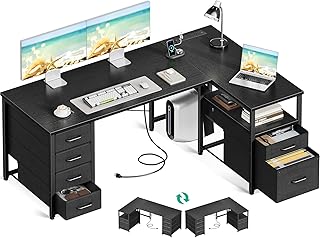The global customized furniture market is thriving, with a projected worth of around USD 104.7 billion by 2034, showcasing a remarkable growth rate of 11.2% from 2025 to 2034. Customized furniture caters to unique needs, preferences, and spaces, offering bespoke designs for both residential and commercial purposes. This market segment focuses on producing personalized furniture tailored to customer specifications in terms of size, style, and materials.
The demand for customized furniture is on the rise as homeowners increasingly seek personalized and one-of-a-kind designs. A survey by Opendoor revealed that 66% of homeowners are opting for cost-effective decor solutions, including custom furniture. With a significant increase in disposable personal income, which grew by $34.2 billion, the demand for customized furniture continues to surge. The market benefits from the growing interest in interior design, fueled by home improvement TV shows and social media platforms. New homeowners, on average, spend around $5,000 on furnishings, indicating a robust market trend.
The customized furniture market is competitive, with various companies offering tailored solutions. While local businesses face pressure from dominant brands, the rising demand for personalized products opens up opportunities for smaller niche players to stand out by offering distinctive designs and customized solutions to meet specific consumer needs. The market is further boosted by the heightened focus on luxury interior design and home decor. For instance, in the restaurant industry, the demand for customized dining furniture is growing as part of a broader shift towards personalization in various sectors, including home and business furniture.
Customized living room furniture dominates the product type segment, accounting for 38.0% of the market share due to its versatility and high consumer demand. Homeowners are increasingly seeking personalized furniture pieces for their living spaces, such as sofas, coffee tables, and entertainment units, to create comfortable and stylish environments. While other sub-segments like customized bedroom, office, and kitchen furniture also contribute to the market, they do not have the same widespread appeal as living room furniture.
Individual consumers are the primary end-users in the customized furniture market, representing 55.0% of the market share. This dominance is driven by a growing trend of creating personalized living spaces that reflect individual styles and functional needs. Commercial customers, interior designers, architects, and real estate developers also contribute to the market but to a lesser extent. The market also sees opportunities for growth in online platforms, sustainability, and tech integration, catering to evolving consumer preferences.
In terms of price ranges, premium furniture leads the segment with 40.0% market share, appealing to consumers seeking high-end, long-lasting, and stylish pieces. The mid-range segment offers a balance between quality and affordability, while the economy segment targets budget-conscious consumers. Offline retail remains the dominant distribution channel, capturing 45.2% of the market share, as consumers prefer the tactile experience and personalized service offered in physical stores. Online retail is gradually catching up, providing convenience and accessibility to a broader audience.
The European region leads the customized furniture market with a 34.5% market share, driven by a strong demand for bespoke furniture that aligns with the region’s culture of individuality and quality craftsmanship. Factors such as strong manufacturing capabilities, design expertise, and a focus on sustainable living contribute to Europe’s market dominance. Other key regions include North America, Asia Pacific, the Middle East & Africa, and Latin America, each showcasing unique growth dynamics driven by factors such as disposable incomes, urbanization, and consumer preferences for personalized home furnishings.
Major players in the customized furniture market include renowned brands like IKEA, Ashley Furniture Industries, La-Z-Boy, and American Leather, offering tailored solutions to meet the increasing demand for personalized and unique furniture designs. These companies provide a wide range of customizable options, combining style, functionality, and personalization to cater to modern consumer needs. The market is characterized by innovation, sustainability, and a focus on delivering high-quality customized solutions to meet the evolving demands of consumers globally.
📰 Related Articles
- Global Outdoor Furniture Market Set to Reach USD 57.2 Billion by 2034
- Kidswear Market Growth Projected to Reach $190 Billion by 2034
- Agentic AI Market Soars to USD 11 Billion by 2034 Amid Tariff Challenges
- Ultrasound Probe Cover Market Set to Reach USD 410.98 Million by 2034
- Soy Beverage Market Surges: USD 44.7 Billion by 2035






